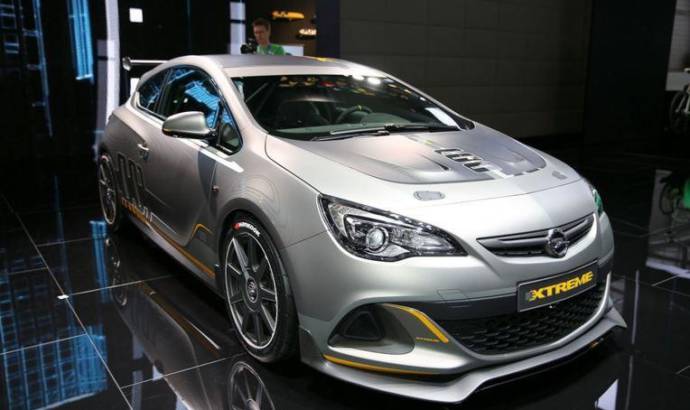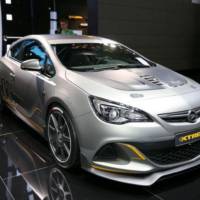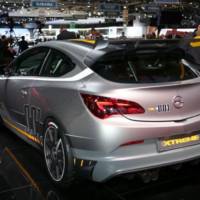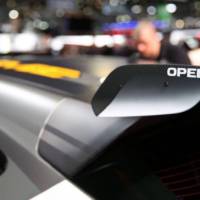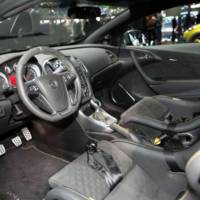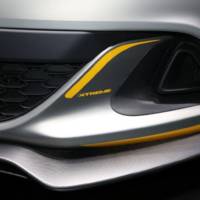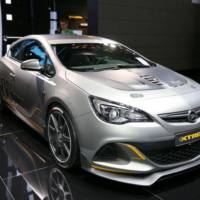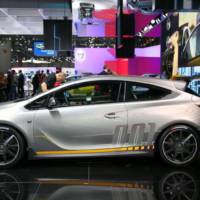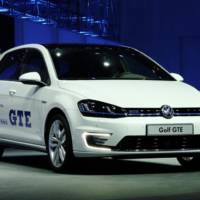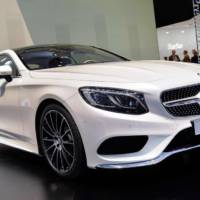Opel has revealed today the brand-new 2014 Astra OPC Extreme performance model at the 2014 Geneva Motor Show.
Developed on the Nürburgring Nordschleife, the most challenging race track in the world, it is powered by a 2.0-liter turbo engine with over 300 hp and equipped with all the key high-tech components from its racing peer, the Opel Astra OPC Cup. The Astra OPC EXTREME was developed directly from the Cup version and brings pure racing technology to the road. If public reaction is as positive as expected, Opel plans a low-volume production run for the super sporty, street-legal EXTREME.
Over 300 hp will be unleashed from under the EXTREME’s carbon fiber hood. Its 2.0-liter turbo gasoline engine, with direct injection and variable camshaft phasing, is quite simply the most powerful four-cylinder unit Opel has ever produced. The all-aluminum engine is mated to a slick, six-speed manual gearbox transmitting power through a limited-slip differential.
This race-proven powerplant will have an easy time of it with the OPC EXTREME, because the super sporty car is 100 kilograms lighter than a conventional Astra OPC thanks to its high-quality, carbon fiber components.
Widely used in Formula 1 racing to reduce weight, carbon composite is incorporated throughout the EXTREME.
This high-strength, ultra-light material is used for the aerodynamically-optimized rear wing, the diffuser, front spoiler, hood, suspension cross-bracing, the engine cover, complete wheels, rear wheelhouse ventilation and roof. The carbon wheels are 20 kilograms lighter than their aluminum counterparts. This is weight saving in a decisive area because unsprung mass is substantially reduced – much to the joy of engineers and driving fun of drivers.
The inhouse manufactured carbon fiber roof is almost as light as a feather. It weighs just 2.6 kilograms, compared to a steel roof’s 9.3 kilograms, and noticeably lowers the Astra EXTREME’s center of gravity. The fenders are made of aluminum and weigh only 800 grams a piece instead of 2.2 kilograms in steel.

